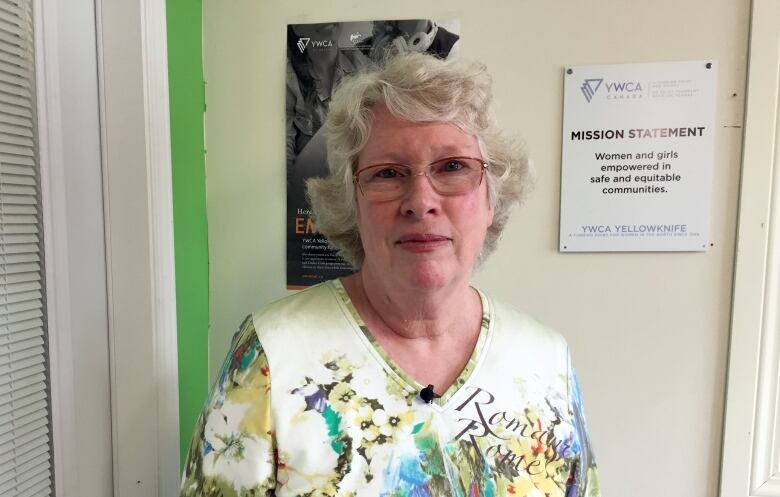Yellowknife Housing First program expands to include families in 1 year pilot project
'They have children and they have no place to live' says executive director of YWCA NWT

The city of Yellowknife is expanding its Housing First program to include homeless families thanks to $86,000 in federal funding
The new "Housing First for Families" initiative will be managed by the YWCA NWT, following the organization's successful bid for the city contract. The plan is to place 12 homeless families in existing rental accommodations.

"When everyone thinks of homelessness they think of single people," said Lyda Fuller, YWCA NWT executive director.
"But what people don't see — but we see all the time — are homeless families. They could be single parent families, they could be couples, but they have children and they have no place to live."
As with the original Housing First program launched last year, the new program does not build housing. Instead, it will help homeless families find housing in existing rental units. The program will not pay the rent, but it will help families in the program navigate sources for income assistance and rent subsidies.
"We're hoping to be able to access the funding for rent subsidies through NWT Housing Corporation," Fuller said. "They... put a pot of money aside for Housing First initiatives."
Addresses capacity issue
The $86,000 will fund the hire of an additional YWCA staff member with expertise in mental health and addictions, who will manage the family cases for the YWCA. The money will also be drawn upon to help families purchase move-in incidentals, like shower curtains or other items not included in an apartment rental.
Hiring an additional worker addresses what Fuller described as a capacity issue.
"There are only so many families you can effectively support for each staff person," she said. "We are a bit over-capacity right now. Having another full time staff means we can support more people."
But the clock is ticking.
Funding for the position is only for the current fiscal year, ending March 2018. This means the program is already two months in before the contract is signed Friday at City Hall.
"It ends in March [2018] and then we have to find a way to keep it running," Fuller said.
No families have been identified yet, but Fuller expects to have the first of 12 families housed by the end of June.
With files from Mitch Wiles